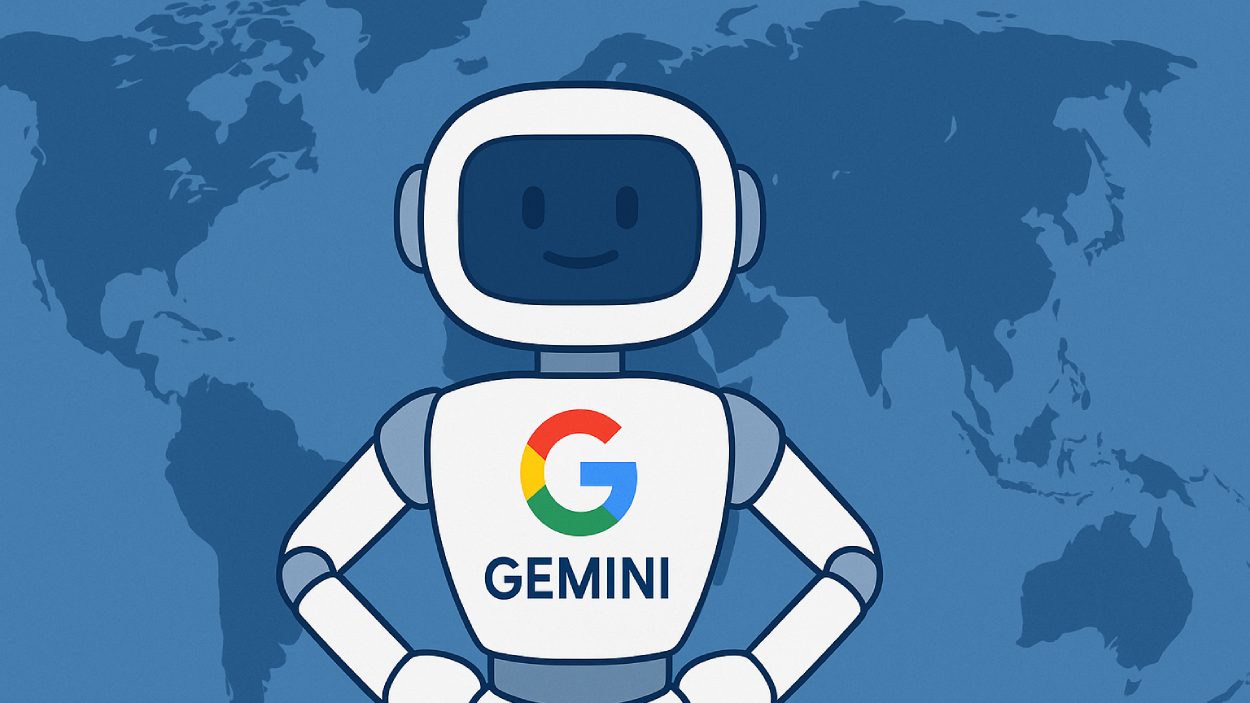Google has expanded its lower cost AI Plus plan to more than 40 countries, directly positioning it as a competitor to OpenAI’s ChatGPT Go in many emerging markets. The rollout is part of a push to make advanced AI features more affordable and accessible worldwide.
Quick Summary – TLDR:
- Google’s AI Plus plan is now live in over 40 new countries across Asia, Africa, Latin America, and Eastern Europe
- The $4 to $5 tier unlocks access to Gemini 2.5 Pro, video and image tools (Veo, Flow, Whisk), Google Workspace AI, and 200 GB of cloud storage
- Google is offering a 50 percent discount for six months in select locations
- The move intensifies competition with ChatGPT Go, which has expanded into markets like Indonesia and India
What Happened?
Google first introduced AI Plus in Indonesia, pricing it at Rp 75,000 (around $4.50 per month). After observing positive uptake, the company formally extended availability to 40 additional countries. The expansion targets markets in Africa, Asia, Latin America, and parts of Eastern Europe, including Nigeria, Kenya, Mexico, Vietnam, Nepal, and Ukraine.
This rollout comes amid intensifying competition in the AI subscription space. OpenAI’s ChatGPT Go, launched earlier in India and now extended to Indonesia, offers a lower price middle tier for users who want more than the free plan but find the $20 premium tier too costly. Google’s expansion signals its intent to compete directly for this segment.
Google AI Plus is now available in 40+ countries 🌏
— Google Gemini App (@GeminiApp) September 23, 2025
Google AI Plus is our newest plan designed to empower people in emerging markets to do more with Google AI, for less. Now, even more people around the world can access our productivity and creativity tools at a more accessible… pic.twitter.com/mLqH0zwrk4
Features and Benefits of AI Plus
AI Plus sits between Google’s free AI tools and its premium plans (AI Pro and AI Ultra). Subscribers receive a powerful bundle of features designed to boost creativity, productivity, and research. Key offerings include:
- Elevated usage and editing limits in Gemini Nano Banana for image tasks
- Access to Veo 3 Fast for video generation, plus Flow and Whisk creative tools with monthly credits
- Deep research capabilities via Gemini 2.5 Pro
- Seamless integration of Gemini AI with Gmail, Docs, and Sheets
- Enhanced features in NotebookLM, including audio overviews and deeper notebook interaction
- 200 GB of Google storage, which can be shared with family group members (AI features remain tied to the primary account)
In many of these markets, Google is offering a 50 percent discount on AI Plus for the first six months to encourage sign-ups. The plan offers a more affordable alternative to AI Pro ($20/month) or AI Ultra ($250/month).
A push into underserved markets
Google is focusing heavily on regions where premium plans might be out of reach. Many of the newly included countries are in emerging markets where a $20/month subscription is prohibitive. By lowering the cost, Google hopes to drive adoption, build user loyalty, and tap into untapped user bases.
Direct competition with ChatGPT Go
ChatGPT Go and AI Plus now compete directly in several overlapping markets. Both offer affordable AI access with more generous usage caps than free plans. Google’s wider launch shows it wants to be a serious contender in this pricing tier.
Challenges ahead
- Internet infrastructure in some regions may limit the experience.
- Local regulations on data and AI usage vary significantly.
- User onboarding and education will be critical to avoid misuse or overreliance.
- Turning discounted users into long-term subscribers remains a hurdle.
SQ Magazine Takeaway
I think this move is long overdue. Google has the tools, and now it’s finally making them accessible to the rest of the world. By bringing affordable AI to places that big tech often ignores, Google is showing real commitment to inclusive innovation. The features in AI Plus are legit impressive for the price. If done right, this could be Google’s golden ticket to winning loyalty in the next billion-user markets.


































































